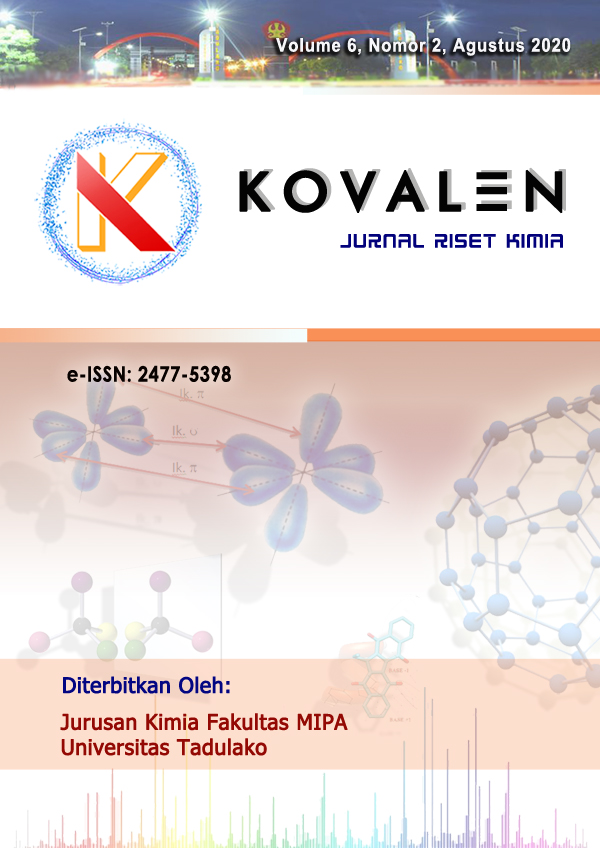Main Article Content
Abstract
Robusta coffee (Coffea canephora) is the most widely produced coffee in Indonesia. The relatively high acid content causes robusta coffee to be less attractive to both local and international consumers. Acid levels in coffee can be reduced by heating techniques using water as a solvent because it is cheap and easy to obtain and water is also a safe solvent and has no side effects for health. Coffee bean water content was analyzed by heating to constant weight by the oven method, acid content by titration technique, and followed by organoleptic testing. The results of the analysis of water content for dry treatment of 10.02%, wet treatment of 10.35% and on heating for 15, 30, 45, 60, 75, and 90 minutes respectively at 9.99%; 10.34%; 9.70%; 10.40%; 11.65% and 11.36%. The results of the analysis of acid levels for the treatment of dry processing amounted to 3.65%, wet processing amounted to 3.42%, and for heating for 15, 30, 45, 60, 75, and 90 minutes respectively 3.03%; 2.76%; 2.51%; 2.39%; 2,32% and 2,28%. Organoleptic test results showed that the decline in the quality of coffee occurs when heating above 45 minutes. Based on research data it was concluded that the heating method can reduce acid levels in coffee beans with a maximum heating time of 45 minutes to maintain the quality of taste in coffee.
Keywords: Coffea canephora, organoleptic, warming up, titration.

